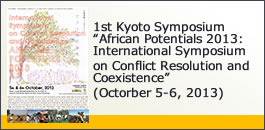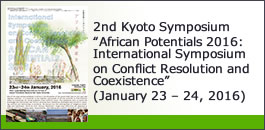Date: 06– 08 December 2013
Venue: Juba Grand Hotel, Juba, South Sudan
The Outline and Purpose of the Forum
A report by Eisei Eisei Kurimoto, Professor of Anthropology, Graduate School of Human Sciences, Osaka University
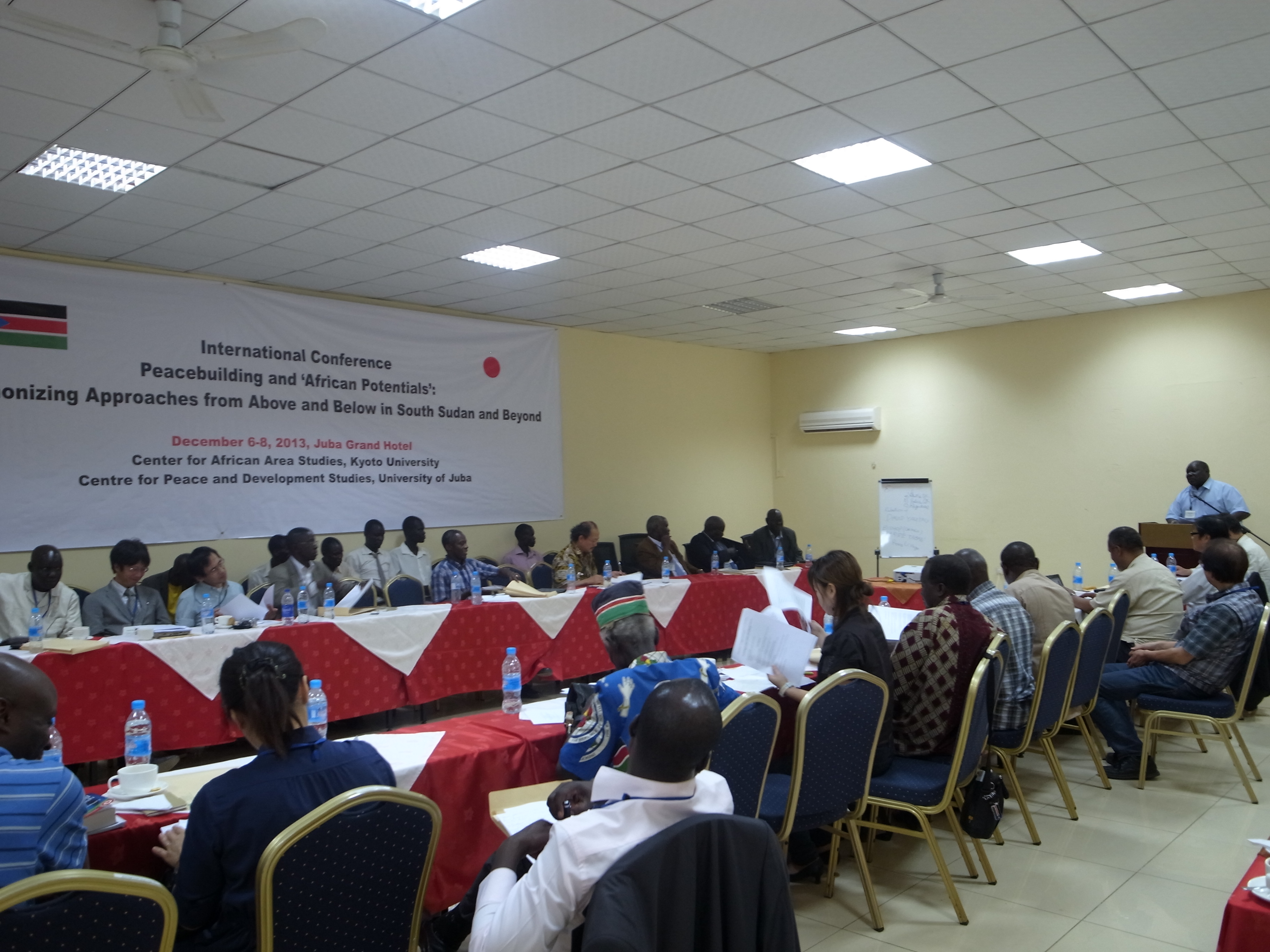
The proposed Forum was organized under the cooperation between Kyoto University’s research project, “Comprehensive Area Studies on Coexistence and Conflict Resolution Realizing the African Potentials,” headed by Professor Itaru Ohta, and Center for Peace and Development Studies (CPDS), University of Juba, and co-chaired by Eisei Kurimoto (Osaka University) and Sirisio Oromo (Director, CPDS). It was the third forum organized by the Kyoto University’s “African Potentials” research project, the first one held in Nairobi in 2011, the second one in Harare in 2012.
(https://www.africapotential.africa.kyoto-u.ac.jp/en/)
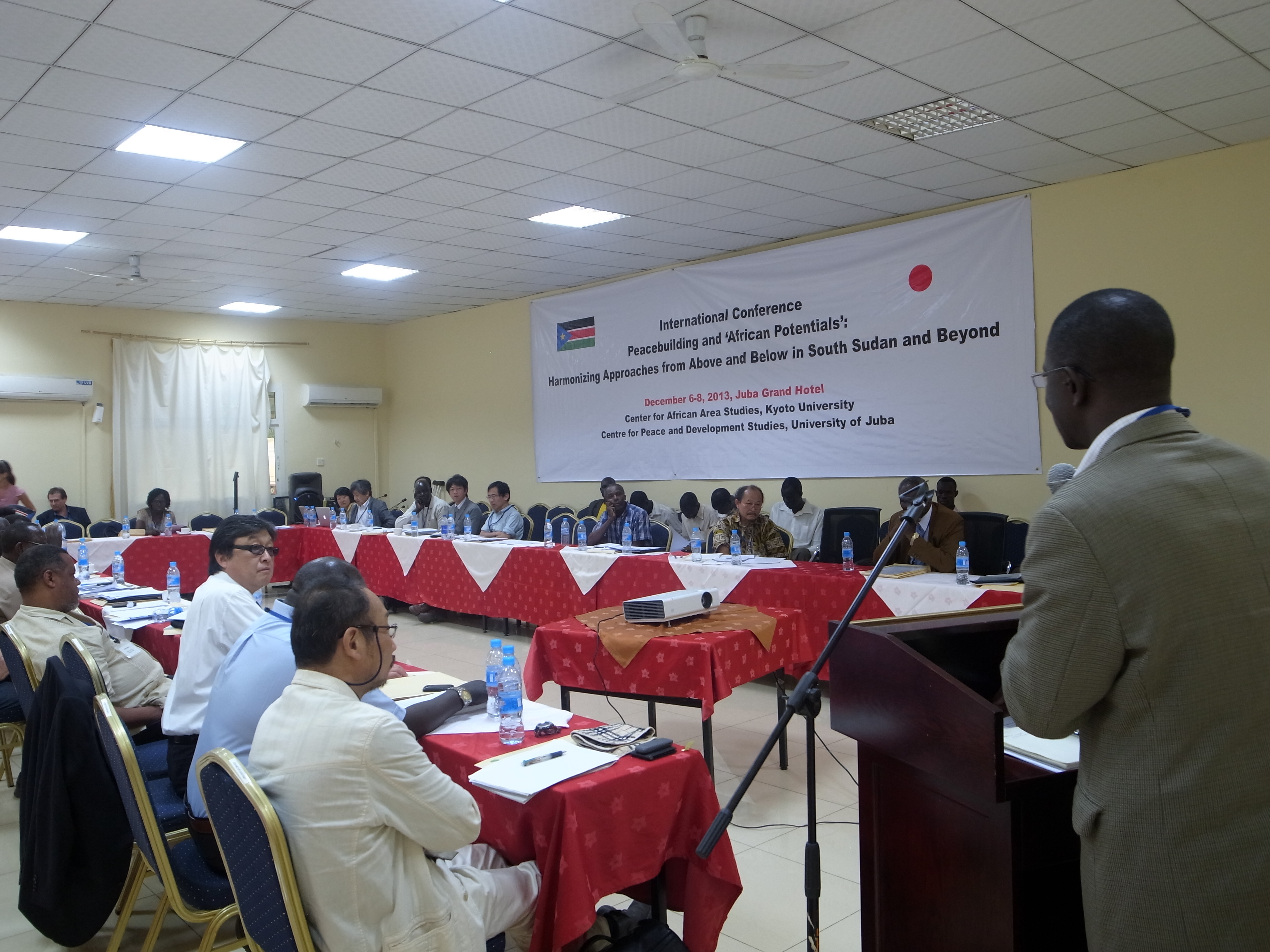
The basic background of the Forum was that even after the Comprehensive Peace Agreement (CPA) of January 2005 that put an end to the 22 year civil war and the independence of the Republic of South Sudan in July 2011, in many places peaceful coexistence among people was yet to be achieved, and armed conflicts continued. Indeed some areas were in a war situation. South Sudanese people themselves were the victims of this in one way or another. The purpose of this Forum was to explore a way forward to establish durable peace at different levels of society at all localities in South Sudan. In order to achieve this, we brought a variety of stakeholders and experts together, bringing out case studies, analyzing and contextualizing them in a three day intensive conference. A wider regional perspective was also brought in for comparison by Japanese and African scholars working in other countries. In our presentations and discussions particular emphases was put on: 1) how we are able to fill the existing gap, harmonize and seek an interface between the two approaches of peacebuilding and reconciliation, peace from above and peace from below; and 2) how we can identify, reactivate and utilize “African or South Sudanese potentials,” that is indigenous and endogenous orientation of people for peace, at various levels of society.
Program
December 6 (Fri.)
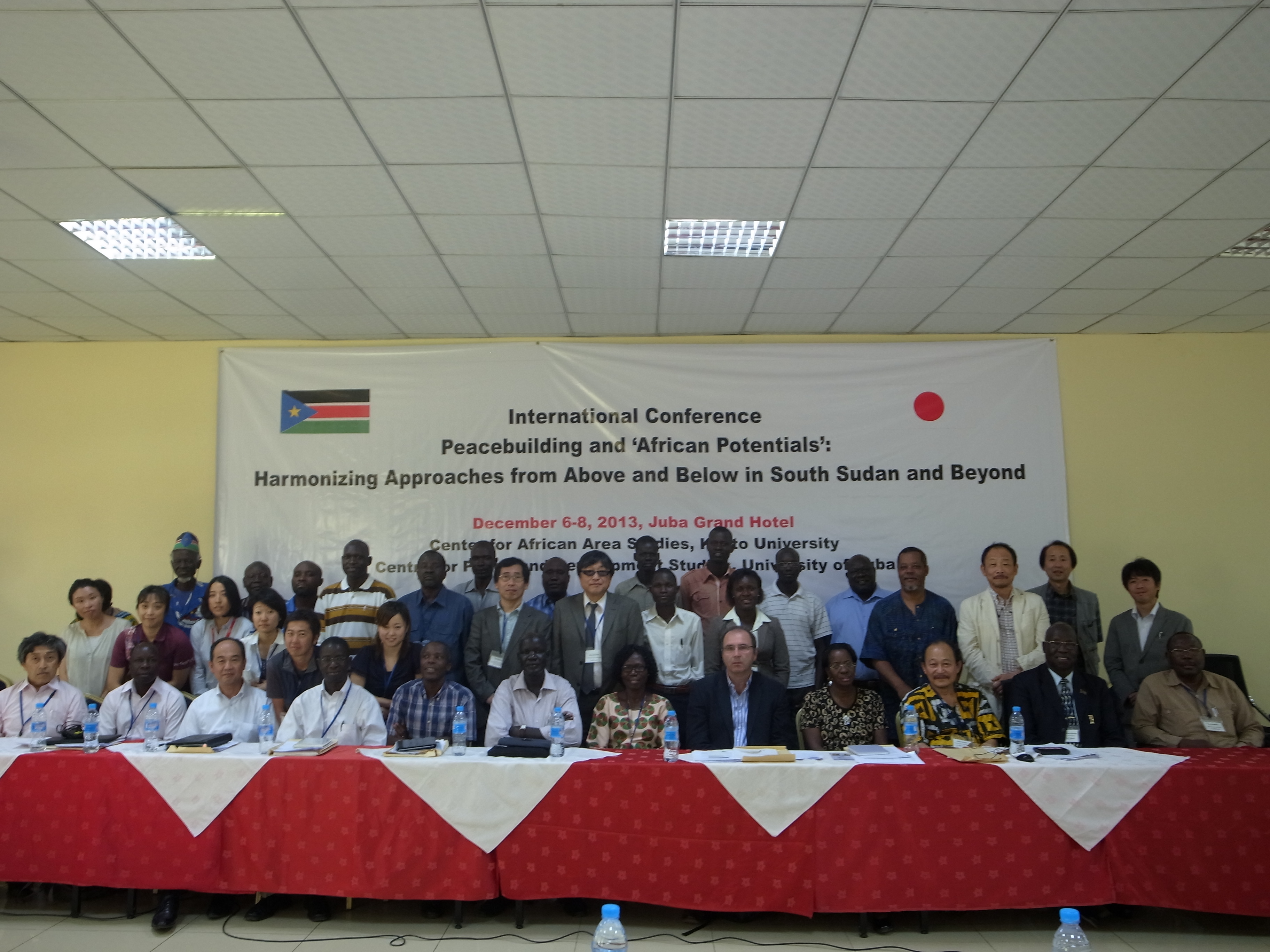
- 14:00 – 14:20 OPENING REMARKS
- Dr. Sirisio Oromo (Director, Centre for Peace and Development Studies, University of Juba) & Prof. Itaru Ohta (Center for African Area Studies, Kyoto University)
- 14:20 – 14:40 WELCOME ADDRESSES (chaired by Dr. Sirisio Oromo)
- Prof. Aggrey L. Abate (Vice Chancellor, University of Juba)
- 14:40 – 14:45 INTRODUCTION OF THE KEYNOTE SPEAKER
- Prof. Eisei Kurimoto (Graduate School of Human Sciences, Osaka University)
- 14:45 – 15:30 KEYNOTE SPEECH
- Dr. Peter Adwok Nyaba (Former Minister of Higher Education, Republic of South Sudan /
Independent scholar)
“The War of Liberation Is Over; South Sudan Is Independent; Why Are the People Still Dying?” - 15:30 – 15:50 DISCUSSIONS (chaired by Prof. Eisei Kurimoto)
- 15:50 – 16:10 COFFEE/TEA BREAK
- 16:10 – 18:10 PANEL 1: INTERNAL AND EXTERNAL DYNAMICS OF ARMED CONFLICTS
- Chair: Mr. Philip Ohuyoro (Lecturer, College of Social & Economic Studies, University of Juba)
- 1) Prof. Eisei Kurimoto
- “Armed Conflicts in South Sudan since 2005: Old and New, an Attempt of Classification and Contextualization”
- 2) Prof. Samson Wassara (College of Social & Economic Studies, University of Juba)
- “Indigenous Potentials for Dispute Settlement and Reconciliation Waning in South Sudan: Consequences of Armed Conflicts”
- 3) Mr. Simon Monoja (College of Social & Economic Studies, University of Juba)
- “Ethnicity and Conflict: The Case of Jonglei State”
- Discussant: Prof. Edward K. Kirumira (College of Humanities and Social Sciences, Makerere University)
- 18:30 – 20:00 RECEPTION AT AFRICAN HUT, JUBA GRAND HOTEL
December 7 (Sat.)
- 09:00 – 10:30 PANEL 2: DESIGNING PEACEBUILDING AND RECONCILIATION
- Chair: Dr. Sirisio Oromo
- 1) Ms. Nguyen Thi Ngoc Van (Head of the South Sudan Recovery Fund Secretariat, UNDP) & Dr. Mayumi Yamada (Recovery, Reintegration, Peace Building (RRP) Officer, UN Resident Coordinator’s Office)
- “A Human Rights-Based Approach (HRBA) to Sustainable Peace and Development in South Sudan”
- 2) Hon. David Okwier Akway (Chair, The Peace and Reconciliation Committee, South Sudanese Legislative Assembly)
- 3) Hon. Chuol Rambang (Chair, The Peace and Reconciliation Commission, Government of the Republic of South Sudan)
- Discussant: Prof. Yoichi Mine (Graduate School of Global Studies, Doshisha University)
- 10:30 – 10:50 COFFEE/TEA BREAK
- 10:50 – 12:50 PANEL 3: VIEWS FROM BELOW: LEARNING FROM CASE STUDIES
- Chair: Prof. Samson Wassara
- 1) Mr. Isao Murahashi (Ph.D. Candidate, Graduate School of Human Sciences, Osaka University / JSPS Postdoctoral Research Fellow)
- “Inter-ethnic and inter-communal conflicts after CPA: The root cause of conflicts and the possibility of coexistence in Eastern Equatoria State”
- 2) Ms. Eri Hashimoto (Ph.D. Candidate, Graduate School of Social Science, Hitotsubashi University)
- “Searching for ‘African Potentials’ in the ‘Modern’ Conflicts of South Sudan: An Aspect of Armed Youth and the Prophet in Jonglei State”
- Discussant: Prof. Motoji Matsuda (Department of Sociology, Graduate School of Letters, Kyoto University)
- 12:50 – 14:30 LUNCH BREAK
- 14:30 – 17:20 PANEL 4: CHALLENGES OF GRASSROOTS PEACEBUILDING AND RECONCILIATION
- Chair: Prof. Eisei Kurimoto
- 1) Mr. Michael Arensen (The PACT-South Sudan)
- “Implementing Peacebuilding in South Sudan”
- 2) Ms. Gladys Mananyu (The South Sudan Council of Churches (SSCC))
- “Peoples Voices, Desires for Peace That Starts within Tender Hearts”
- 3) Fr. Archangelo Lokoro (Vicar-General, Catholic Diocese of Torit (DOT))
- “Be a Good Neighbour Yourself”
- 4) Rev. James Ninrew (Nuer Peace Council)
- Discussant: Prof. Sam Moyo (The Executive Director, The African Institute for Agrarian Studies (AIAS))
December 8 (Sun.)
- 09:00 – 11:00 PANEL 5: VIEWS ACROSS NATIONAL BORDERS
- Chair: Mr. Simon Monoja
- 1) Dr. Itsuhiro Hazama (Assistant Professor, Graduate School of International Health Development, Nagasaki University)
- “Peace and Bodily Expression from Below: Violence through Disarmament in Karamoja, Northern Uganda”
- 2) Prof. Tanga Odoi (College of Humanities and Social Sciences, Makerere University)
- 3) Dr. Christine Mbabazi (College of Humanities and Social Sciences, Makerere University)
- “Potential and Limitations of Traditional Rituals in Peacebuilding”
- 4) Prof. Akira Okazaki (Graduate School of Social Science, Hitotsubashi University)
- “Peacebuilding from the ‘Bottom’: African Traditional Wrestling Matches as Potentials for Conflict Prevention and Reconciliation”
- Discussant: Prof. Kennedy Mkutu (International Relations and Peace Studies, United States International University)
- 11:00 – 11:30 COFFEE/TEA BREAK
- 11:30 – 13:00 GENERAL DISCUSSIONS
- Chairs: Prof. Eisei Kurimoto & Prof. Motoji Matsuda (Department of Sociology, Graduate School of Letters, Kyoto University)
- 13:00 – 13:10 CONCLUDING REMARKS (by Prof. Itaru Ohta)
- 13:20 – 14:50 FAREWELL LUNCH

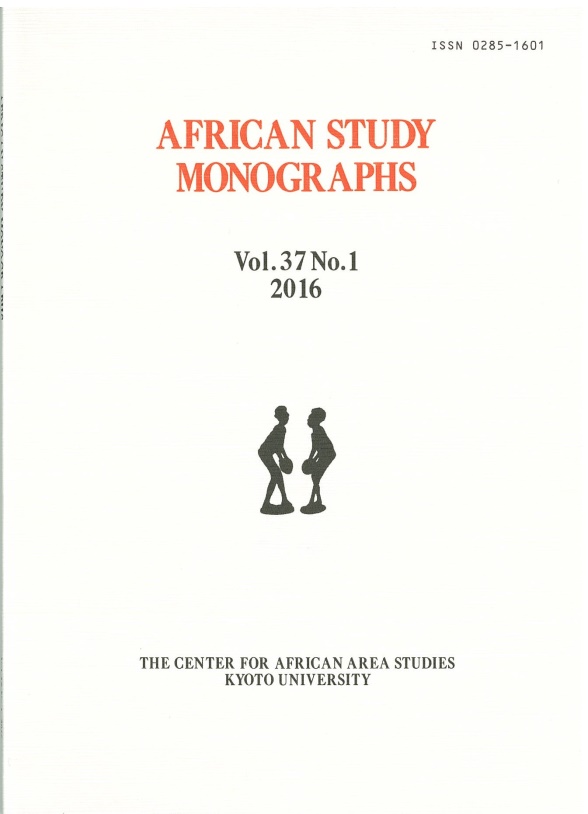
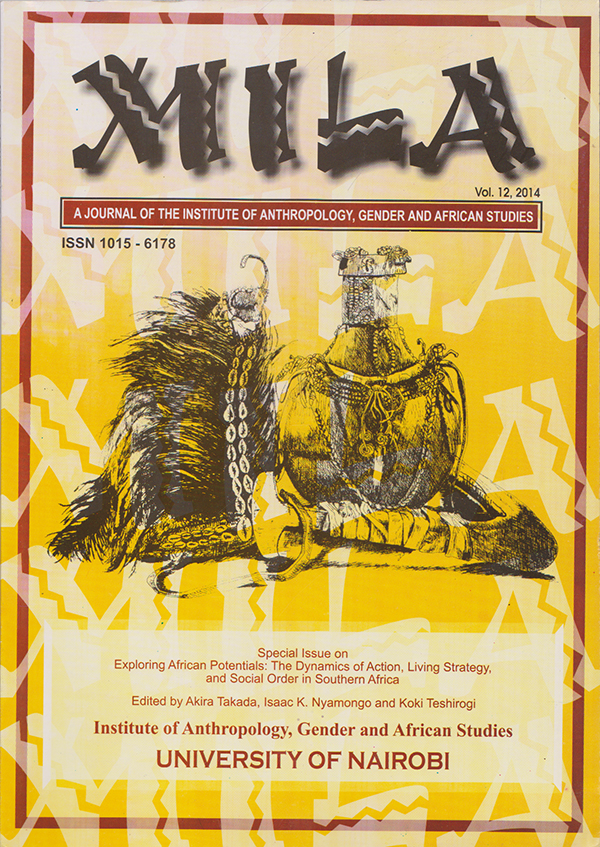 Exploring African Potentials, Mila Special Issue
Exploring African Potentials, Mila Special Issue